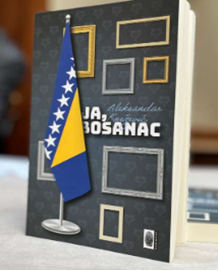SRETAN VAM MART 14. (3/14) - DAN BROJA PI (π)
HAPPY MARCH 14 (3/14) - PI (π) NUMBER DAY
(Aleksandar Knežević)
Zadaci i
odgovori
Koliki su obim i površina kvadrata čija je dužina 2m. Odgovor: Obim je 8 m3, a površina 4 m2.Koliki su
obim i površina kruga prečnika 2 m? Obim je 2 π [m], približno 6,283 m, a
površina π [m2], približno
3,14159 m2). Nastanak broja π i njegova historijaPrve spoznaje o omjeru opsega kruga i
njegovog prečnika potječu iz drevnih civilizacija. Egipćani i Babilonci su
još oko 2000. godine p.n.e.
koristili aproksimacije za π. Na primjer, Babilonci su koristili vrijednost 3,125, dok su Egipćani koristili
približnu vrijednost (16/9)² ≈ 3,1605. Grčki matematičar Arhimed (287–212 p.n.e.) bio je prvi koji je rigorozno
procijenio vrijednost π. Koristio je metodu upisanih i opisanih mnogouglova
(poligona) kako bi odredio gornju i donju granicu broja π, zaključujući da je
njegova vrijednost između 3,1408 i
3,1429. Kroz srednji vijek i renesansu, brojni
matematičari su poboljšavali izračune π koristeći sve preciznije metode, a
dolaskom računalne ere broj π je izračunat na bilijarde decimala. Simbol π je prvi put upotrijebio velški
matematičar William Jones
1706. godine, a kasnije ga je popularizirao švajcerski matematičar Leonhard Euler. Kvadratura
kruga – nerješiv problem Jedan od najvećih problema klasične
matematike bio je problem kvadrature
kruga. Ovaj problem se može opisati jednostavno:
"Da li je
moguće konstruirati kvadrat iste površine kao zadani krug koristeći samo
ravnalo i šestar?" Matematičari su stoljećima pokušavali
pronaći rješenje, ali bez uspjeha. Problem je konačno riješen 1882. godine
kada je njemački matematičar Ferdinand
von Lindemann dokazao da je π transcendentalan broj – što znači da ga nije moguće izraziti kao
rješenje bilo koje polinomske jednačine s racionalnim koeficijentima. Ovo znači da nije moguće konstruirati kvadrat iste površine kao krug koristeći samo
klasične geometrijske alate. Kvadratura kruga je, dakle, nemoguć
zadatak. Broj Pi (π) na prvih hiljadu decimala Za one koji ne znaju na pamet,
evo broja Pi (π) na prvih hiljadu decimala:
|
|
Tasks
and answers
What are the perimeter and
surface of a square whose length is 2m. Answer: The volume is 8 m3,
and the area is 4 m2.
What
are the perimeter and surface of a circle with a diameter of 2 m? The
volume is 2 π [m], approximately 6.283 m, and the area is π [m2],
approximately 3,14159 m2).
Origin
and history of π
The first knowledge of the
ratio of the circumference of a circle to its diameter comes from ancient
civilizations. The Egyptians and Babylonians used approximations for π as
early as 2000 BC. For example, the Babylonians used a value of 3.125, while
the Egyptians used an approximate value of (16/9)² ≈ 3.1605.
The Greek mathematician
Archimedes (287–212 BC) was the first to rigorously estimate the value of π.
He used the method of inscribed and circumscribed polygons to determine the
upper and lower bounds of π, concluding that its value was between 3.1408 and
3.1429.
Throughout the Middle Ages and Renaissance,
numerous mathematicians improved calculations of π using increasingly precise
methods, and with the advent of the computer era, π was calculated to
trillions of decimal places. The symbol π was first used by the Welsh
mathematician William Jones in 1706, and later popularized by the Swiss
mathematician Leonhard Euler.
Squaring
the Circle – The Unsolvable Problem
One of the greatest problems of
classical mathematics was the problem of squaring the circle. This problem
can be stated simply:
"Is it possible to
construct a square of the same area as a given circle using only a
straightedge and compasses?"
Mathematicians have been trying
to find a solution for centuries, but without success. The problem was
finally solved in 1882 when the German mathematician Ferdinand von Lindemann
proved that π is a transcendental number – meaning that it cannot be
expressed as a solution to any polynomial equation with rational
coefficients.
This means that it is not
possible to construct a square of the same area as a circle using only
classical geometric tools. Squaring the circle is therefore an impossible
task.
Pi
(π) to the first thousand decimal places
For those who don't know how to memorize
it, here is Pi (π) to the first thousand decimal places:
|
|
Zašto
je π toliko važan Broj π nije samo geometrijska konstanta, već
se pojavljuje u brojnim područjima matematike i nauke:
Zaključak Broj π je više od puke matematičke konstante
– on je simbol neprekidnog istraživanja i ljudske znatiželje. Od drevnih
matematičara do modernih superračunara, potraga za njegovim decimalama nikada
ne prestaje. Kvadratura kruga, iako nemoguća, ostaje jedna od najpoznatijih
matematičkih enigmi. Dan 14. mart (3/14 prema američkom formatu
datuma) slavi se kao "Dan broja π", kada matematičari i
zaljubljenici u nauku širom svijeta obilježavaju ovu nevjerovatnu brojku.
|
|
Why is π so important The number π is not just a geometric
constant, but appears in numerous areas of mathematics and science: • Geometry: π defines the ratio of the
circumference to the diameter of any circle. • Trigonometry: π is key in the
trigonometric functions (sine and cosine), which describe waves and
oscillations. • Physics: It appears in the laws of
gravity, electromagnetism, and quantum mechanics. • Statistics and number theory: Many
formulas involve π, even in seemingly unrelated fields. Conclusion The number π is more than just a mathematical
constant—it is a symbol of ongoing research and human curiosity. From ancient
mathematicians to modern supercomputers, the search for its decimals has
never stopped. Squaring the circle, although impossible, remains one of the
most famous mathematical enigmas. March 14 (3/14 in the American date format)
is celebrated as "Pi Day," when mathematicians and science
enthusiasts around the world commemorate this incredible number. |



